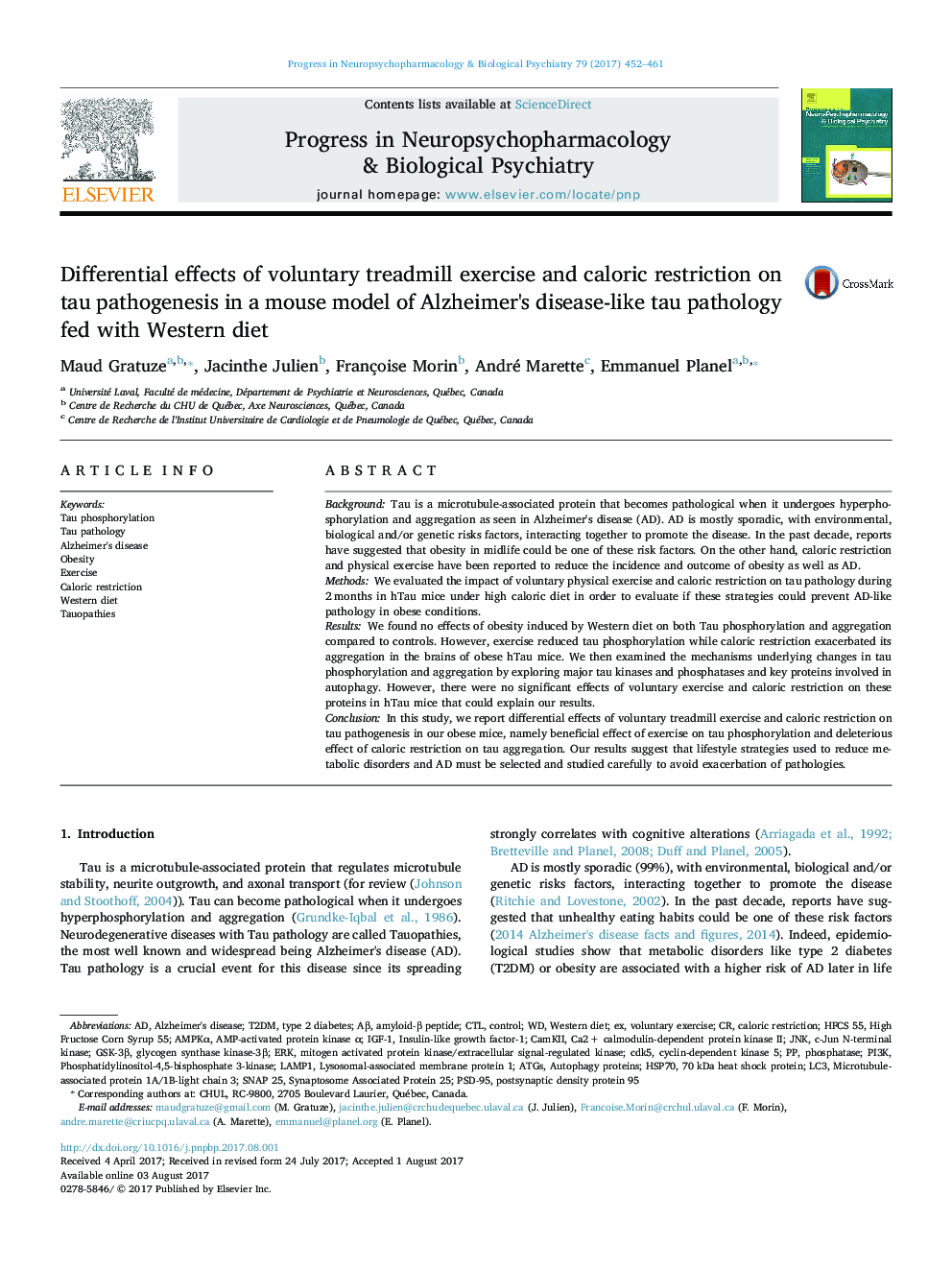| Article ID | Journal | Published Year | Pages | File Type |
|---|---|---|---|---|
| 5557942 | Progress in Neuro-Psychopharmacology and Biological Psychiatry | 2017 | 10 Pages |
â¢Obesity might be a risk factor for Alzheimer's disease (AD).â¢Caloric restriction and exercise could reduce the risk of obesity and AD.â¢In obese hTau mice, exercise reduced tau phosphorylation while caloric restriction worsened tau aggregation.â¢Lifestyle strategies used to reduce metabolic disorders and AD must be studied carefully to avoid worsening of tau pathology.
BackgroundTau is a microtubule-associated protein that becomes pathological when it undergoes hyperphosphorylation and aggregation as seen in Alzheimer's disease (AD). AD is mostly sporadic, with environmental, biological and/or genetic risks factors, interacting together to promote the disease. In the past decade, reports have suggested that obesity in midlife could be one of these risk factors. On the other hand, caloric restriction and physical exercise have been reported to reduce the incidence and outcome of obesity as well as AD.MethodsWe evaluated the impact of voluntary physical exercise and caloric restriction on tau pathology during 2Â months in hTau mice under high caloric diet in order to evaluate if these strategies could prevent AD-like pathology in obese conditions.ResultsWe found no effects of obesity induced by Western diet on both Tau phosphorylation and aggregation compared to controls. However, exercise reduced tau phosphorylation while caloric restriction exacerbated its aggregation in the brains of obese hTau mice. We then examined the mechanisms underlying changes in tau phosphorylation and aggregation by exploring major tau kinases and phosphatases and key proteins involved in autophagy. However, there were no significant effects of voluntary exercise and caloric restriction on these proteins in hTau mice that could explain our results.ConclusionIn this study, we report differential effects of voluntary treadmill exercise and caloric restriction on tau pathogenesis in our obese mice, namely beneficial effect of exercise on tau phosphorylation and deleterious effect of caloric restriction on tau aggregation. Our results suggest that lifestyle strategies used to reduce metabolic disorders and AD must be selected and studied carefully to avoid exacerbation of pathologies.
